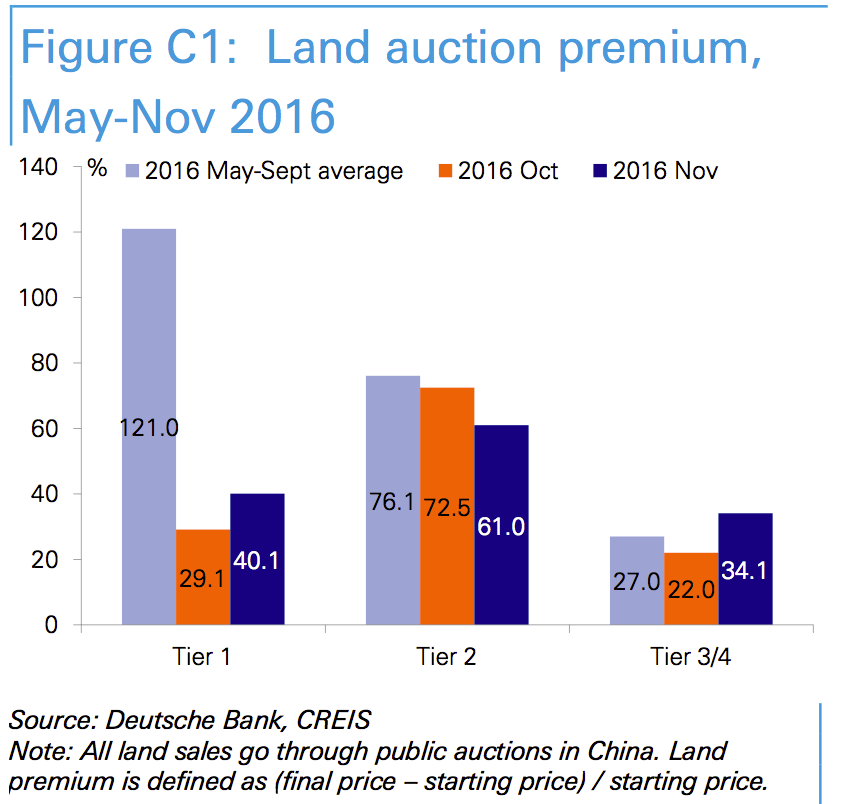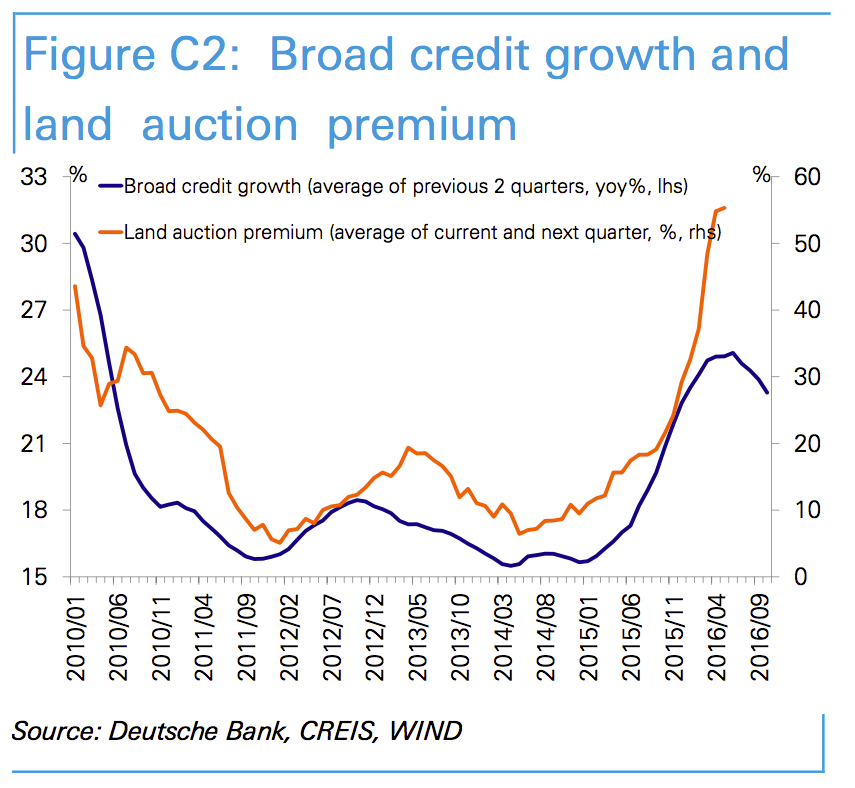DEUTSCHE BANK: The property bubble 'is the most important macro issue in China'

China's debt-fuelled property boom, and potential bust, will be one of the biggest issues facing the country's policymakers in 2017, according to Deutsche Bank.
Deutsche Bank economists, led by Zhiwei Zhang and Li Zeng, said the real estate bubble is "the most important macro issue in China," in a note to clients.
They point to rapid hikes in land sales and auction prices, as well as mounting debt levels, as needing attention.
Land sales accounted for more than a third of local government revenue, Deutsche Bank said, and mortgages made up 43% of all new loans issued in renminbi.
The difference between the starting price and final price in land auctions continues to rise rapidly and "this shows some developers continue to expect sharp property price inflation to come," the analysts said.
Here's the chart:

Reuters/Aly Song
And here's the debt chart showing sharp increases for this year:

Reuters/Aly Song
"Chinese policymakers are aware the market risks overheating and will act accordingly."
"In the next few months we believe the government will put further pressure on developers by tightening broad credit growth," Zhang and Zeng said. "Property sales and investment growth will likely slow further in 2017Q1. Local government land revenue may weaken by 2017Q2."
On Monday analysts at Morgan Stanley raised the alarm about increased household borrowing, led by mortgages, in a note to clients.
China's debt to GDP rose to 276% in the third quarter this year from 249% in 2015. "This has been mainly driven by a rapid rise in new mortgages from RMB 1.7 trillion in 2014 to RMB 4.6 trillion in the past 12 months," according to a note circulated to clients.
With the debt overhang growing, the economic benefits of borrowing more are shrinking. It took nearly eight units of debt to produce one unit of GDP growth in 2016, compared with around four in 2014.
NOW WATCH: 7 inventors who were killed by their own inventions
See Also:
SEE ALSO: IMF: Chinese banks are disguising a massive amount of bad debt
SEE ALSO: 4 charts that show China's accelerating debt problem

 Yahoo Finance
Yahoo Finance 
